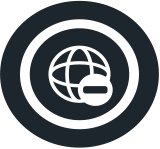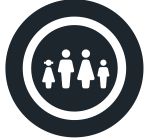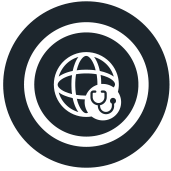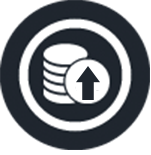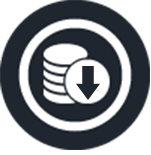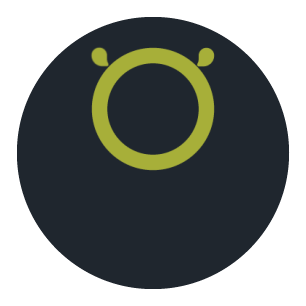Compare Affordable Medical Aid Quotes in Minutes!
Take control of your healthcare with confidence. Get a quick, free, side-by-side medical aid quote comparison with Hippo. Just answer a few easy questions and find a medical aid plan that suits you.
What size is your family?
-
 Compare a range of medical aid quotes in one place.
Compare a range of medical aid quotes in one place.
-
 Find a medical aid that suits your health needs, lifestyle, and budget.
Find a medical aid that suits your health needs, lifestyle, and budget.
-
 It’s completely free to use! No hidden costs or unexpected terms.
It’s completely free to use! No hidden costs or unexpected terms.
-
 Your personal information stays private. We’ll never share or sell your data.
Your personal information stays private. We’ll never share or sell your data.
-
 We only partner with trusted, registered medical aid providers.
We only partner with trusted, registered medical aid providers.
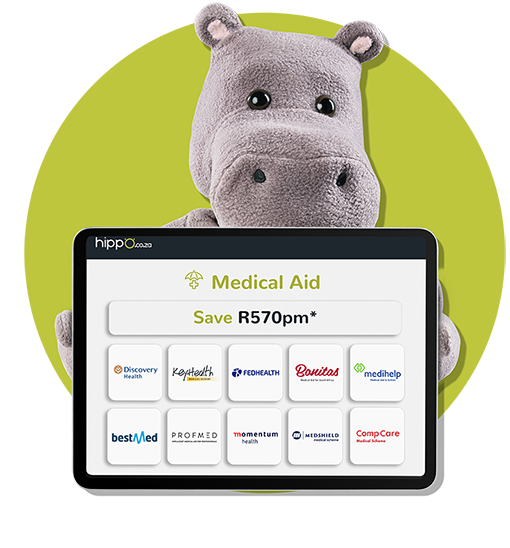
Compare trusted medical aid companies.
Compare these leading medical aid companies in South Africa
All our medical aid partners are registered and vetted.
We are always trying to add more brands for our customers. If you don’t see a brand, that’s their decision.
What makes our medical aid partners the best?
We don’t just look at size when we pick which medical aid partners we work with. It’s also about their financial report card and how well they serve their members:
-

All our partners have a Global Credit Rating of A or higher
-

They’ve all been around for 32 years or longer
-

They all have over 100 hospitals in their network, and most have over 200
4 easy steps to compare medical aid plans.
In just a few easy steps, Hippo gives you a range of affordable medical aid plans from some of South Africa’s top providers.
1
Get started
Head to the top of this page and tell us how many people you need medical aid for.
2
Answer a few questions
We’ll ask you for some details that help us curate the best medical aid plans for you.
3
Get your quotes
Compare affordable medical aid quotes side by side. No need to spend hours on the phone.
4
Pick your plan
Choose the medical plan that suits your needs. Then, a representative from the medical aid will get in touch.
1
Get started
Head to the top of this page and get started by telling us how many people you’re taking out cover for.
2
Answer a few questions
We’ll ask you for some details that help us curate the best plan options for you. This includes your level of cover, budget, health, doctor and hospital needs.
3
Get your quotes
Check out our side-by-side medical aid quote comparison. No need to spend hours on the phone getting quotes from separate providers.
4
Pick your plan
Choose the plan that suits your needs. Now sit back – a representative from the medical aid you chose will get in touch with you to give you more info and/or guide you through the rest of your application.
Why compare medical aid quotes with Hippo?
Choosing the right medical aid shouldn’t cause grey hairs. Hippo simplifies the process by letting you compare trusted medical aid quotes side by side—so you can find reliable, affordable healthcare that fits your needs and your wallet.
Save time
Compare prices, cover limits, and exclusions in just a few clicks.
Save effort
No calls, no long forms. Just simple, online comparisons that work for you.
Save money
See your medical aid options upfront and choose a plan that fits your needs.
Save smart
Get results ranked by price and features, so you can choose with confidence.

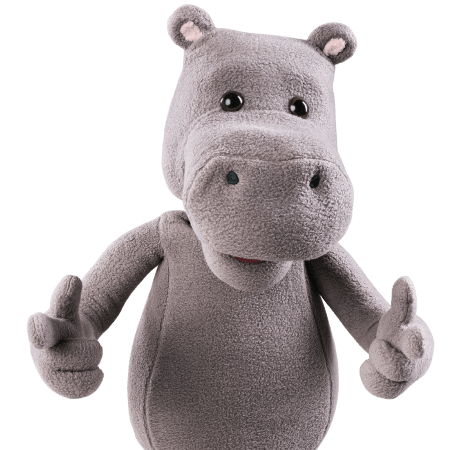
What Does Medical Aid Cost?
We’ll help you find a medical aid plan that suits your needs and your pocket. Below are South Africa’s most popular medical aid providers and their monthly premium ranges:

Monthly premium range*
R1,432 - R10,343

Monthly premium range*
R1,378 - R9,853

Monthly premium range*
R520 - R9,187

Monthly premium range*
R1,102 - R10,303

Monthly premium range*
R965 - R14,883

Monthly premium range*
R1,990 - R11,308

Monthly premium range*
R894 - R12,792

Monthly premium range*
R1,584 - R7,842

Monthly premium range*
R541 - R13,573

Monthly premium range*
R956 - R11,883
Medical aid made simple.
Hippo’s expert tips for making the most of your health cover.
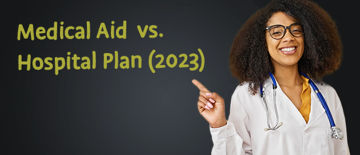
The Difference Between Medical Aid and a Hospital Plan
Read more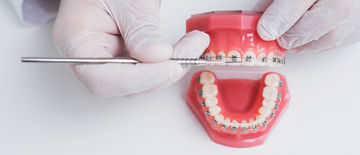
Does Medical Aid Cover Braces?
Read more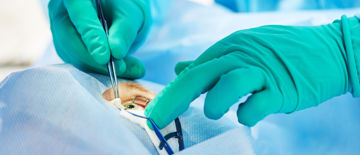
Laser Eye Surgery: Will your Medical Aid Cover it?
Read more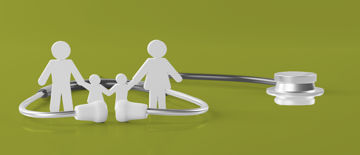
How to choose your medical scheme for 2025
Read more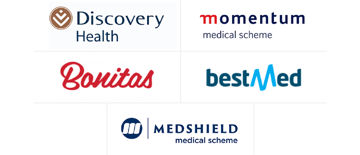
The Top 5 Medical Schemes in South Africa
Read more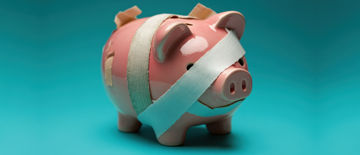
What is Gap Cover: Your 101 Guide
Read moreThe ultimate medical aid guide.
Hippo’s complete guide to medical aid in South Africa. Find out all the information you need on medical aid plans, gap cover, hospital plans, and what they cover in this guide.
Basic types of medical aid cover explained
Medical aid in South Africa comes in a few key plan types, each offering different levels of cover and flexibility. Each type affects how much you pay and what kind of healthcare services you can access. From emergency hospital stays to day-to-day GP visits and chronic medication.
This table provides a clear overview of the key differences between major types of medical aid plans, helping you choose the right one based on your medical needs and budget.
PMBs
Prescribed Minimum Benefits – a set of 27 chronic conditions that all medical aids are legally required to cover.
Network Providers
Specific GPs, hospitals, and pharmacies that you must use to access full benefits on certain plans.
Medical Savings Account (MSA)
A portion of your monthly contribution set aside for everyday medical expenses like GP visits and medication.
SA’s leading medical aid comparison website.
Once you go Hippo, you don’t go back. Just ask these customers:
This is perfect and user friendly
I saw the advert on my phone confirming that if I need assistance when looking for insurance Hippo can assist. The advert also told me to press for urgent assistance. I did. I was assisted immediately.
I'm happy to choose hippo because it has options of all insurance companies
By advertising on social media all insurance companies. I have saved R400 from the insurance that I choose.
Amazing service rendered
Execellent service, timeous response, great communication and a good overall experience finding the ideal insurance for you.
Great Service
I was desperate for an insurance an affordable premium as Auto General had suddenly communicated that they would charge me R2400. Hippo provided affordable options and within 3 hours, I had new insurance cover at a good rate and the old insurance cancelled.
Customer Experience
The lady that helped she was the best and honest with everything we discussed about their insurance company. Thank you dear for the best customer service.
Compare more than just medical aid quotes.
With Hippo, you can compare more than just medical aid plans. We make it easy to find great deals across different healthcare products.
Medical Insurance
Compare South Africa’s best medical insurance providers.
FAQ
What is medical aid?
Medical aid is a type of health cover that helps pay for your medical expenses, from routine doctor visits to hospital stays and chronic medication. In South Africa, medical aid plans are regulated to ensure they provide a minimum level of essential care, known as Prescribed Minimum Benefits. These plans vary in cost and coverage, allowing you to choose a level of support that suits your healthcare needs and budget.
How does medical aid work?
Medical aid plans work on the principle of shared risk, where all members contribute a monthly premium into a collective pool. This pooled fund is then used to pay for members’ medical expenses according to the specific benefits and limits of the plan they’re on. Depending on the type of cover you choose, you may also have access to a personal medical savings account for everyday expenses. Or you may need to pay some costs out of pocket once your limits are reached.
How much is medical aid in South Africa?
The cost of medical aid in South Africa varies widely depending on the level of cover you need and the benefits included. If you're looking for comprehensive protection with day-to-day and hospital cover, you'll likely pay a higher premium. More affordable plans, such as hospital-only or network-based options, are available for those on tighter budgets, with monthly costs ranging anywhere from a few hundred to several thousand Rand.
What's the difference between medical aid and gap cover?
Medical aid is designed to help cover the cost of your healthcare, including GP visits, hospital stays, chronic medication, and more. It offers different levels of cover depending on the plan you choose and ensures access to essential health services when you need them most. All registered medical schemes are overseen by the Council for Medical Schemes, which requires them to provide Prescribed Minimum Benefits. This is a list of critical health conditions that must be covered, no matter what plan you’re on.
Gap cover is a separate policy that works alongside your medical aid to protect you from unexpected shortfalls. Sometimes, healthcare providers charge more than what your medical scheme is willing to pay, especially for specialist procedures or hospital care. Gap cover steps in to pay the difference, so you’re not left footing a large bill. It’s not a replacement for medical aid, but rather a valuable add-on for those wanting greater peace of mind when it comes to managing out-of-pocket expenses.
What's the best medical aid for a family?
When choosing the right healthcare option for your family, it’s important to consider your unique lifestyle and medical needs. Is your family constantly visiting the doctor for colds, check-ups, and scripts. Or do you mostly need protection for emergencies and hospital stays? If you’re looking for all-round peace of mind, a comprehensive plan may suit you best, and that’s where it helps to compare medical aid plans side by side to see which one ticks all the boxes.
Medical aid cover can ease the stress of unexpected medical bills and help you stay on top of your family’s health without breaking the bank. If affordability is a priority and you mainly need hospital protection, a hospital plan offers a cost-effective solution by covering major in-hospital procedures without day-to-day extras. Ultimately, the key is to balance your family’s health needs with your budget, so take the time to compare before you commit.
Does medical aid cover braces?
Many parents of tweens and teens know just how costly orthodontic care, like braces, can be. While most medical aid plans do offer some level of orthodontic cover, the benefits can vary quite a bit between providers. Some schemes may cover the full cost of treatment, while others only offer partial funding or require pre-authorisation and specific clinical motivation. That’s why it’s a smart move to request medical aid quotes upfront, so you can see exactly what’s included and avoid unexpected out-of-pocket expenses later on.
Understand your medical aid's dental offeringsDoes medical aid cover laser eye surgery?
Laser eye surgery can be a game-changer for people who rely on glasses or contact lenses every day. The procedure is quick, generally low-risk, and can offer long-term freedom from corrective eyewear. But it does come with a hefty price tag. Fortunately, many medical aid plans in South Africa include some level of cover for laser eye surgery, though the extent of that cover can vary widely. Some options may foot the full bill, while others might only pay a portion or require a co-payment from your side. If this kind of procedure is on your radar, it’s worth exploring affordable medical aid options that include vision-related benefits.
Find out more about medical aid and laser eye surgery hereDoes medical aid cover psychologists’ services?
Are psychologist visits covered by medical aid? And what are your options if you're not on one? In South Africa, most medical aid plans include some form of mental health support, such as therapy sessions with a registered psychologist. However, the scope of cover can vary. Some plans may limit the number of sessions per year, while others may only reimburse part of the consultation fee or require a referral from a GP. That’s why it’s important to compare medical aid plans carefully if mental health care is a priority for you or your family. If you're uninsured, there are also free or low-cost services available through public clinics, NGOs, and community health programmes.
Here's what you need to knowWhy don’t medical aids cover breast reduction surgery?
Macromastia (excessively large breasts) is a legitimate medical condition that can cause chronic pain, posture issues, and emotional distress for many women. Despite the physical and psychological impact, most medical aids in South Africa still classify breast reduction surgery as cosmetic rather than medically necessary. That said, some providers may consider funding the procedure if a compelling medical motivation is submitted by a specialist. However, there are no uniform guidelines across the board, which means approval is assessed on a case-by-case basis. If you're considering this surgery, it’s wise to gather medical aid quotes and consult with your provider upfront to understand what support, if any, is available.
Find out more hereDo medical aids cover mammograms and pap smears?
With cancer rates on the rise in South Africa, early detection through regular screenings has never been more vital. Catching disease in its early stages can make all the difference in treatment success and even prevention. That’s why many medical aids promote preventative healthcare by covering routine check-ups like pap smears, mammograms, blood pressure monitoring, and bone density scans. Most medical aid plans offer these benefits without dipping into your day-to-day savings, making proactive care more accessible. If you’re looking to prioritise prevention without overspending, exploring affordable medical aid options with strong screening benefits is a smart move.
Get more information on mammograms and pap smearsHow will NHI affect medical aid?
The National Health Insurance (NHI) aims to provide universal healthcare access to all South Africans, but it's still being rolled out in phases and much remains unclear. What we do know is that once fully implemented, the NHI could limit the role of private medical aids to covering only services not provided by the state. But, this transition won’t happen overnight, and medical aid schemes remain essential for accessing private healthcare, avoiding long queues, and getting faster treatment. For now, it’s still important to compare medical aid plans to ensure you’re getting value for money and coverage that meets your health needs. Especially while the NHI system continues to take shape.
How to cancel medical aid?
Cancelling your medical aid plan can be a straightforward process, but there are important steps to follow. First, you’ll need to review your contract terms, as some plans may require a notice period before cancellation. Contact your medical aid provider and submit a written request, clearly stating your intention to cancel. Be sure to settle any outstanding payments, as some plans may have cancellation fees or require payment up to the end of the month. If you’re switching to another provider, make sure there’s no gap in coverage. Before making any decisions, it’s also a good idea to request medical aid quotes from other providers to compare your options and find a plan that better suits your current needs.
How much is medical aid per month?
The cost of medical aid varies significantly depending on the level of coverage you choose. For basic plans, you can expect to pay a few hundred Rand per month, while more comprehensive medical aid plans can range from several thousand Rand monthly. Factors like your age, health history, and the specific medical aid plan you opt for will also influence the price. It’s important to carefully assess your healthcare needs and budget when selecting a plan. To get a clearer idea of what fits your requirements, you can compare medical aid plans from different providers to find a balance between affordability and coverage.
Which medical aid is the best?
There is no one-size-fits-all answer when it comes to the best medical aid, as it largely depends on your individual health needs, lifestyle, and budget. Some people may prioritise comprehensive coverage with extensive benefits, while others may only need basic hospital cover. It’s important to consider factors such as the types of services offered, network coverage, and premiums. To make an informed decision, it’s essential to compare medical aid plans from different providers, looking at the benefits, exclusions, and costs involved. This way, you can choose the plan that offers the best value for your specific healthcare needs.
What is the difference between medical aid and medical insurance?
Medical aid is a healthcare funding system where members pay monthly premiums, and in return, the fund covers a wide range of medical services, including hospitalisation, doctor visits, and specialist care, depending on the plan. It operates on a pool-based system, where the contributions of members fund the healthcare costs of all.
Medical insurance, on the other hand, is more focused on specific events or conditions, offering a fixed benefit payout for hospital stays or specific treatments. It often provides less comprehensive cover compared to medical aid and may not cover routine doctor visits or chronic care. If you’re unsure which option is best for you, it’s a good idea to get medical aid quotes from different providers to compare coverage and find the right fit for your healthcare needs.
Does medical aid cover therapy?
Many medical aid plans do cover therapy services, such as sessions with psychologists, physiotherapists, and occupational therapists. But, the level of coverage varies between plans. Some medical aids may include a set number of therapy sessions per year, while others may reimburse a portion of the cost. If mental health is a priority, it’s important to check whether your medical aid plan offers sufficient coverage for therapy, as some plans may require a referral or specific conditions to be met. To ensure you have the right therapy coverage, it’s advisable to compare medical aid plans to see which ones offer the best benefits for your needs.
What is PMB in medical aid?
PMB stands for Prescribed Minimum Benefits, a set of healthcare services that all medical aid plans in South Africa are required by law to provide. PMBs cover a range of conditions and treatments, ensuring that all members have access to essential healthcare services, regardless of their plan. This includes coverage for life-threatening conditions, chronic diseases, and emergencies. While medical aid plans may vary in terms of additional benefits and extras, all plans must cover these minimum benefits to comply with the law. When choosing a medical aid plan, it’s important to check which PMBs are covered and how they are managed, as this can significantly affect your healthcare costs.
Tips and guides to finding the right medical aid for you.
Explore our medical aid resources, filled with essential information, useful guides and expert tips. Everything you need to find the right cover for your health and your budget.
Our Guides
-
Medical aid for students: Discover how to get affordable medical aid if you're under 25.
-
Medical aid for employees: Explore top medical aid plans for your team. All in one convenient place.
-
Medical aid for pensioners: Compare our comprehensive medical aid plans for pensioners to find the right fit for you.
-
Medical aid for families: Find out how to get a family medical aid plan that covers your entire clan.
-
Medical aid for pregnant women: This page offers medical aid plans for pregnant women to keep you and your baby covered.
-
Medical aid for children: Explore the options you have when looking for a medical aid plan for children.
Our Tips
-
Hospital plans: Get the lowdown on hospital plans and how they fit into the medical aid puzzle.
-
Medical gap cover: Gap cover is an extra medical aid policy that can be added to your medical aid.
-
Medical aid companies: Check out the medical aid providers we work with in South Africa.
-
Medical insurance VS medical aid: A simple guide to understanding the differences between medical aid and medical insurance.
-
What to look for when comparing medical aids: Explore tips and things to look for when you compare medical aid plans.
-
Top five medical aid schemes: Discover the five top medical aid companies that lead the pack in South Africa.





